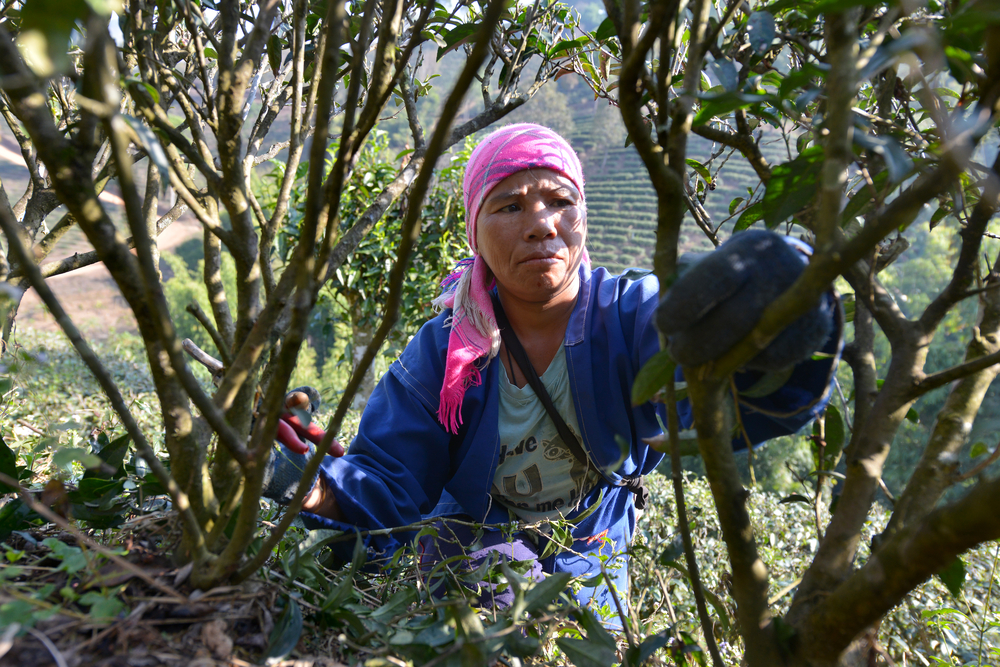This was one of the recommendations made by rural women and specialists from international organizations during a series of forums organized by IICA to analyze the extent to which gender challenges have increased as a result of the coronavirus pandemic.

San Jose, 22 May 2020 (IICA) – Dozens of rural women from the Americas and leading figures in the agriculture sector have called for paying greater attention to gender gaps, which have expanded as a result of the Covid-19 pandemic, as well as taking action on this “key and urgent” issue, with a view to reducing the inequalities that affect food security in the region.
The participants in several forums organized by the Inter-American Institute for Cooperation on Agriculture (IICA) shared stories, including firsthand experiences, that illustrate the ways in which gender gaps have widened during the pandemic, and made sound recommendations for transforming the reality of millions of rural women throughout the hemisphere.
The most recent forum included the participation of Mexican senator Beatriz Paredes; María Caridad Araujo, Head of the Gender and Diversity Division of the Inter-American Development Bank (IDB); Beverly Best, Director of External Relations at IICA; and Manuel Otero, Director General of the Institute.
Some of the strategies proposed were to increase rural women’s access to land; create training opportunities that provide Internet access and technological production tools; generate differentiated funding mechanisms; and draft public policies on family care.
“If women producers in rural areas had the same opportunities as men, crop yields would increase by 20% to 30%,” Otero explained.
“I believe it is crucial to ensure that there is no famine in rural territories and marginal areas. The implementation of urgent prevention measures is crucial,” stated Mexican Senator Beatriz Paredes.
She also requested that a plan be developed under IICA’s leadership to generate employment opportunities in Latin America and the Caribbean.
While the most recent forum had a hemispheric scope, the previous four sessions covered the Andean, Southern and Mesoamerican, Northern and Caribbean regions of the hemisphere.
During the virtual meetings, the lack of access to water was identified as one of the most pressing challenges within the context of the Covid-19 health crisis.
“Rural areas contain more than 60% of the population with no access to water. Throughout the recovery process, there will be opportunities to develop investments in this area, as well as in matters related to connectivity and inclusion agendas, with special emphasis on rural areas,” stated María Caridad Araujo of the IDB.
During the closing forum, IICA announced that it is conducting a study with Microsoft and the IDB to analyze challenges associated with limited Internet access in rural areas.
The forum participants also voiced their concern that the pandemic could generate setbacks in the areas of human rights, agricultural productivity and food security.
“Women can drive change, as they have in the past, to build a better world. The time has come to achieve substantial results. IICA and other stakeholders cannot continue operating in the same way; they must provide an extraordinary response, by means of a new development model,” remarked Beverly Best.
“The current times call for taking action in the short term, bringing together stakeholders and speeding up processes in the search for new development strategies,” concluded Manuel Otero, Director General of IICA.
The opinions shared by rural women and the documents resulting from these meetings will be disseminated by the Institute at the next meeting of the Hemispheric Forum of Ministers of Agriculture. IICA’s high-level Advisory Council for Food Security is also addressing the topic of gender as a cross-cutting issue in its work.
More information:
Institutional Communication Division of IICA
comunicacion.institucional@iica.int










